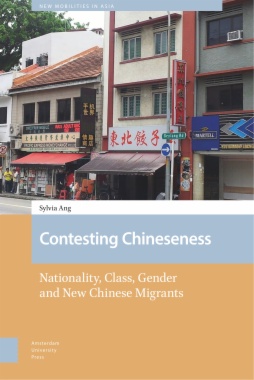Nearly eleven million Chinese migrants live outside of China. While many of these faces of China’s globalization headed for the popular Western destinations of the United States, Australia and Canada, others have been lured by the booming Asian economies. Compared with pre-1949 Chinese migrants, most are wealthier, motivated by a variety of concerns beyond economic survival and loyal to the communist regime. The reception of new Chinese migrants, however, has been less than warm in some places. In Singapore, tensions between Singaporean-Chinese and new Chinese arrivals present a puzzle: why are there tensions between ethnic Chinese settlers and new Chinese arrivals despite similarities in phenotype, ancestry and customs? Drawing on rich empirical data from ethnography and digital ethnography, Contesting Chineseness: Nationality, Class, Gender and New Chinese Migrants investigates this puzzle and details how ethnic Chinese subjects negotiate their identities in an age of contemporary Chinese migration and China’s ascent.
- Cover
- Table of Contents
- Acknowledgements
- Introduction: Contesting Chineseness
- Global anxieties at China’s ascent and the outflow of Chinese immigrants
- The invisibilities of co-ethnic politics
- Immigration and the cultural politics of being Chinese
- Imagining Chinese identity
- Insider, outsider and digital ethnography
- Overview of the book
- References
- 1. Who’s Chinese?
- Once a Chinese, always a Chinese
- Realizing the China dream
- De-Chineseness in Singapore
- Re-sinicizing Singapore
- Hostage to China’s rise and fall
- References
- 2. Not the lower classes
- “We won’t go overly dressed”
- “I don’t dare to eat their food”
- “Dirty” women
- Sensory disturbances, repulsion, and class
- Denying cultural citizenship
- Marked as a Chinese migrant
- References
- 3. A better Chinese man
- Hierarchy of Chinese Masculinities
- “We are of low quality”
- Higher suzhi makes a better man
- Performing Chinese masculinity
- Seeking solace on WeChat
- Reimagining the better Chinese man
- References
- 4. When a Chinese does not speak Chinese
- Chineseness as Mandarin
- Other ways to be Chinese
- Fragmenting identities
- My Chinese culture is better than your Chinese culture
- Civilizational or national belonging?
- Regulating the internet
- Sanitized Chineseness
- References
- 5. In the new Chinatown
- Racialization and the politics of place
- The original Chinatown and the European imaginary
- Geylang: The new Chinatown
- The media’s complicity
- Chinese migrants react: Self Orientalisation
- Locals’ displacement
- Two Chinatowns, two imaginaries of Chineseness
- References
- Conclusion: A hierarchy of Chineseness
- Coconstitution of China and Singapore’s Chineseness
- Enduring Chineseness
- References
- Index

